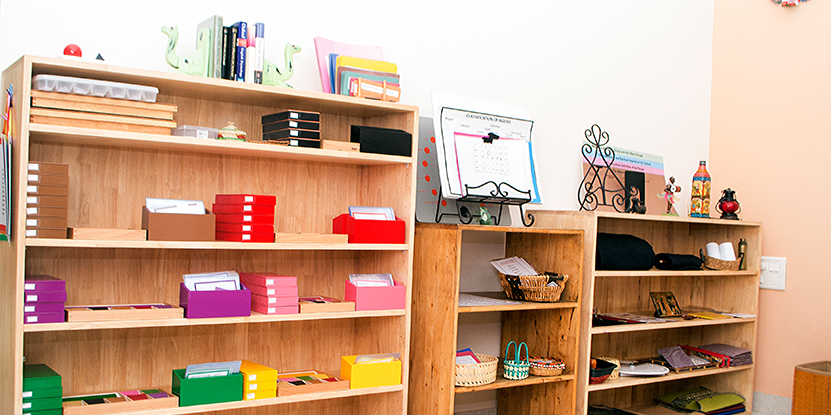PROGRAM : ELEMENTARY
The Elementary Program goes by the name Kriyasthala a - 'Learning Habitat'
Kriyasthala stands as a loving prepared space where creation is always on, a place of happening. It offer experiences to and nurture all that the elementary child is: an intellectual explorer, travelling through time and space in their mindscape, with a fierce imagination, a great power to reason, a deep- seated urge to collaborate and to create their own moral compass.
In the elementary classroom, intellectual and moral independence becomes the focus. The children have mastered their bodies, and now their intellects demand development. The stories of the formation of the universe, the coming of life, and its works now become the focus of these children. The intellect is stimulated by the Guide through imaginative journeys into the past, into the lives and structures of plants and animals. The numbers and language are explored with increasing levels of sophistication.
Curriculum of elementary :
As the children moves through the Montessori Elementary class, they find new meaning and interest in those Great Lessons as they are repeated. The Key Lessons presented have resulted in a new level of knowledge and skill, which has in turn brought the children new levels of understanding. Great Lessons and Key Lessons act in concert and together form a complete symphony.
Great stories and Key lessons are fundamental to practice of the Montessori method at an elementary level and are a materialization of Montessori theory and are the tools used to fire the imagination of the Elementary child. The Great Lessons and Key Lessons are the backbone of the Montessori Elementary classroom.
Using the Great Stories and Key lessons the children are introduced to all subjects. Apart from the standard the subjects the Montessori Elementary Environment also consists of Practical life in which the children are responsible for the care of their environment includes gardening, care of the class pet and general maintenance of the environment. Another important aspect of the Elementary Class is the dual environment. The classroom itself is also limited, and the children are thus put into a position where, in order to find out more, they must leave the classroom and explore museums, displays and contact subject experts. This is the "Going Out" concept that is an important part of the Montessori elementary classroom. Going Out provides an avenue for development of this self-construction. It is time now to move beyond family and school. Physically and mentally, the child is capable of a great deal. The doors to the universe are now thrown open, and the children begin to explore all that surrounds them.
